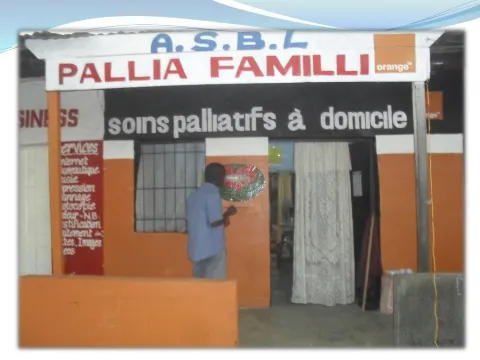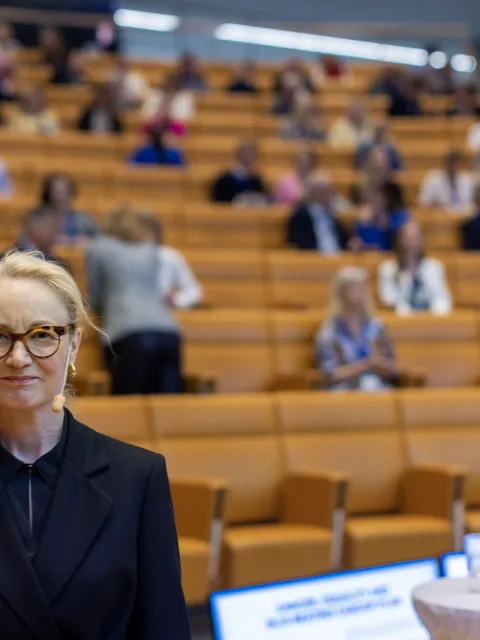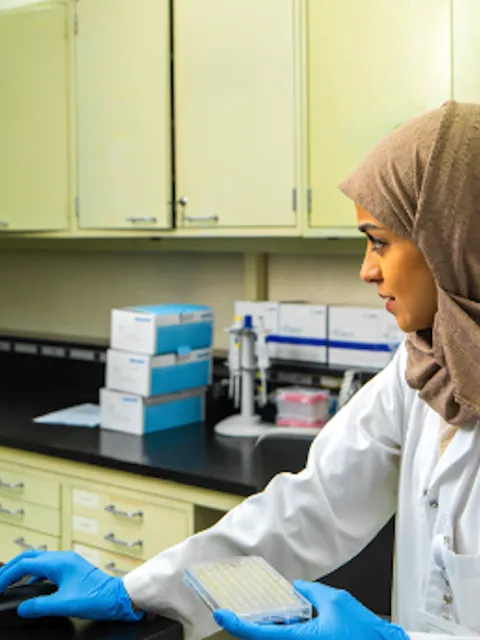DRC: Palliative Care in a culture that avoids the word “death”
Palliafamilli is a Non-Governmental Organisation of Congolese law, based in Kinshasa, Democratic Republic of Congo. Palliafamilli specialises in Palliative Care and supports patients and their families at home. During a visit to the UICC offices in Geneva, Anselme Mubeneshayi Kanaga, President of the Palliafamilli Association talked to us about his challenges and success stories.

Register now to the "3ème Congrès International sur les Soins Palliatifs"
Palliafamilli was founded in 2008. How have you managed to promote access to palliative care since then?
There is no universal health coverage in DRC and most patients do not have access to adequate treatment. They simply go back home when they receive the diagnosis of a chronic disease such as cancer. With Palliafamilli, we have built a strong network of physicians, nurses, physiotherapists and psychologists across the country. Together, we have been able to assist thousands of patients and their families with pain relief and emotional support.
We managed to convince the government to liberalise the access to opioids which used to be classified as illegal drugs and were only prescribed against acute pain after surgery or trauma. In the past few years, we have also organised several successful congresses with health professionals from hospitals, academia, associations and other NGO’s. We brought them together to exchange knowledge and strengthen collaboration.
The government increasingly showed interest in developing a national policy on palliative care. In 2015, we created a national association for palliative care. Today, we closely collaborate with the government on a number of issues. That is why Dr. Joël Mundadi, Health Advisor of the Office of the President, is here in Geneva with me today.
What are the greatest challenges regarding cancer control and pain management for cancer patients in DRC?
Regarding cancer control, the greatest challenge is still the lack of reliable epidemiological data. There is no cancer registry, and as we cannot measure the amplitude of the issue on a national level, it is difficult to plan access to medicines, radiotherapy as well as other treatment.
Moreover, there is no established cancer centre. Patients who have financial means go abroad for treatment. This issue is prevalent along the whole continuum and above all at the diagnostic level, which requires qualified personnel and appropriate equipment. A major problem, that explains why many patients are diagnosed far too late for effective treatment. This is when palliative care is needed.
Communication is an important part of our work to gain acceptance even among patients. In our culture, we cannot pronounce the word “death”. This makes it challenging to talk about palliative care. We rather mention “pain relief” and “patient support”. Once people see that we can increase their quality of life they start trusting us even if there is no more cure.
If colleagues in another country wanted to initiate a similar movement, what would be your advice?
Our recipe is to involve the national authorities as much as possible. We invite politicians, ministers and their teams to our meetings to show them the concrete issues we are facing in our daily work. Another key element is to learn from other organisations and countries, to see what is done elsewhere and then to adapt it to our own cultural and spiritual context. This is why it is so useful for us to be members of UICC. We get great opportunities to network and to exchange good practices with other organizations that are active in the same field.
And you should never underestimate the importance of awareness-raising. In DRC, we continue to visit hospitals, universities and nursing schools to explain the importance of palliative care to young physicians and nurses. While we have made a lot of progress, access to palliative care stills needs to be strengthened across the country.
Last update
Wednesday 16 October 2019
